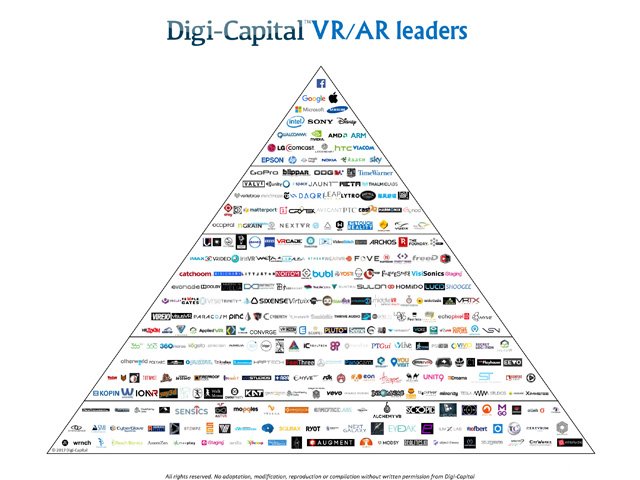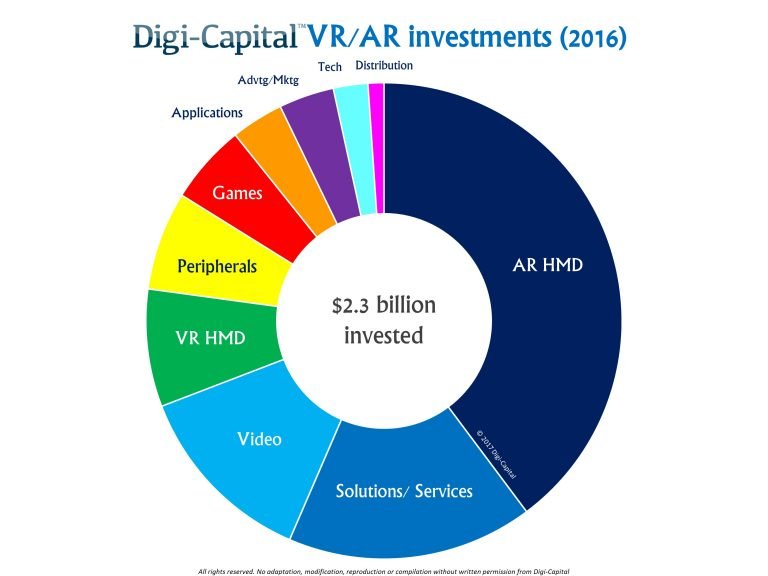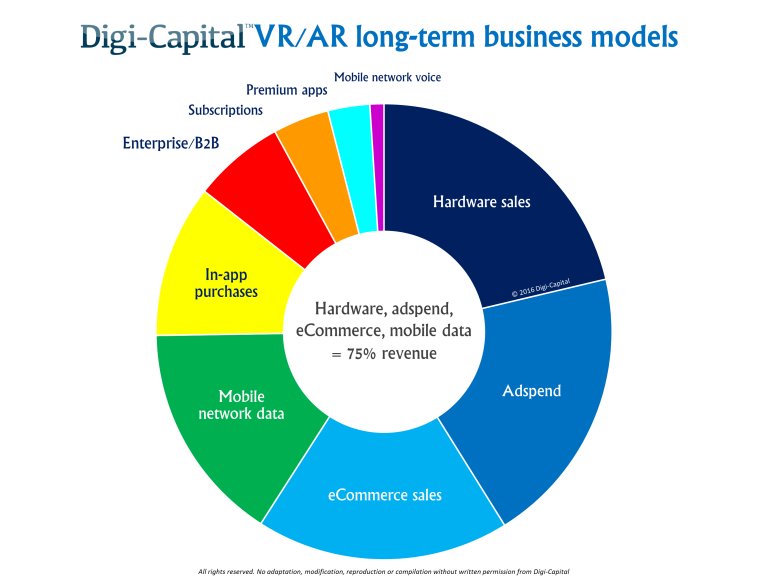Digi-Capital has released an investment report on 2016 AR/VR. Digi-Capital said that the market for VR in the future will be large, and the market for AR will be bigger, but it will take more time to develop. The following is a small make up of the report material from Digi-Capital. According to statistics, the amount of investment in VR/AR startups last year reached US$2.3 billion, which is three times more than the 700 million+US dollar in 2015. The 300% growth achieved in 12 months is impressive, not to mention the achievements made in such early development markets. AR hardware vendor Magic Leap completed a financing of $793.5 million last year, with a valuation of $4.5 billion. However, even though this company received more venture capital than any other company, it accounted for only about 30% of the total VR/AR investment last year. However, with the financing of ODG (US$58 million) and Meta (US$50 million), the proportion of AR hardware is about 40%. The second largest area favored by VCs is services/solutions, with a weighting of 20%. The largest investment is the graphics engine Unity, which completed a financing of $181 million last year, with a valuation of $1.5 billion. Mindmaze, a virtual reality neuroscience company, also became a unicorn with a financing of $100 million and a valuation of $1 billion. So the service/solution got a lot of wind investment in the last year. Although experts will tell you that "360-degree video is not a volume-style VR video," this still doesn't stop investors from investing in VR video companies. In this area, the proportion of VR video is 10%. NextVR got an investment of 80 million US dollars last year, 360fly is 40 million US dollars, and Baobab Studios is 25 million US dollars. Despite competition from Facebook (Oculus), Samsung, Google and other companies, VR hardware startups still received $200 million in venture capital. The investment in VR/AR peripherals and VR games has exceeded US$100 million respectively. Of all the fields, perhaps the most surprising are VR/AR application developers (outside the game) and marketing/advertising start-up companies, both of which have financing amounts of only about $80 million. They will be a huge driving force for long-term value, but investors still seem to think that these areas are still at a very early stage of development and the investment timing is not yet mature. So who are the owners of these "red envelopes"? The big red envelope comes from the rich, such as: Alibaba, Warner Bros., Google, Qualcomm, Fidelity, JP Morgan Chase, Morgan Stanley, T. Rowe Price, Wellington, CIC, Intel, Amazon, CITIC, Netease, Softbank, 21st Century Fox, MGM, Lenovo, Tencent, Comcast, Samsung, HTC, etc. They are the largest investors in the global technology field. In addition to the aforementioned companies, there are other players such as Sequoia, DFJ, Lightspeed, KPCB and Greylock; and dedicated VR/AR investment banks Colopl Next, The VR Fund, Super Ventures, Signia Ventures, Maven Ventures, Presence Capital, GREE VR Capital, Boost VC, Anorak Ventures, Outpost Capital and B Capital, etc. Of course there are other angel investments. In the past year, mobile AR has become a new growth force. However, in the short term, the prospects for VR/AR investors and startups are bright in the long run. Xiao Bian will continue to pay attention to this year's venture capital trend and the latest developments. Single Axis Solar Tracker System Single Axis Solar Tracker System,Sun System Powered One Axis,One Axis Solar Tracker Single Axis,Mounting System Solar Tracker Hebei Jinbiao Construction Materials Tech Corp., Ltd. , https://www.pvcarportsystem.com


DIGI: 2016 AR/VR Ventures Total Investment of US$2.3 Billion
â–¼
DIGI: 2016 AR/VR Ventures Total Investment of US$2.3 Billion from Baidu VR